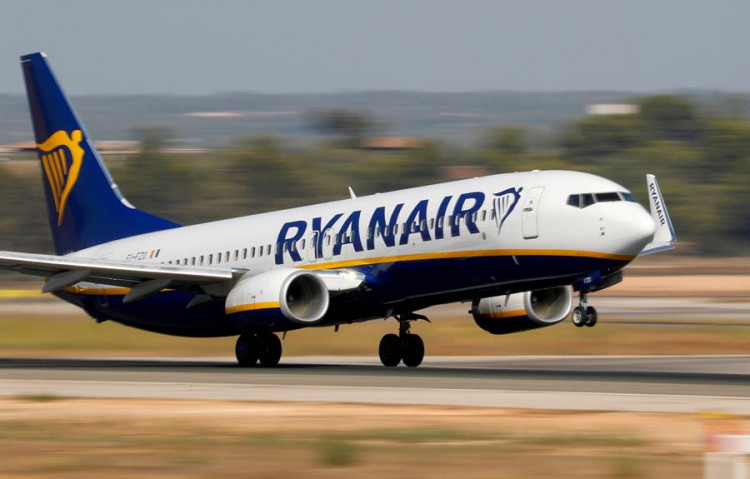As the aviation industry gears up for the summer travel rush, Ryanair's CEO, Michael O'Leary, has sounded the alarm on increasing airfares due to a shortfall in aircraft deliveries from Boeing. The anticipated delay in receiving new Boeing 737 Max 8200 planes is poised to limit the low-cost carrier's capacity to accommodate the surge in holidaymakers, potentially pushing ticket prices up by as much as 10% compared to last summer.
O'Leary, speaking from Ryanair's Dublin headquarters, highlighted the impact of the delayed delivery of 57 Boeing aircraft, originally scheduled for completion by March. With only an estimated 40 to 45 planes expected to arrive in time for the summer season, Ryanair's ability to meet its passenger growth forecast is under threat. The airline had projected carrying 205 million passengers in the year ending March 2025, a significant increase from the 183.5 million in the preceding 12 months. However, O'Leary now suggests this figure might need to be adjusted downwards to around 200 million.
The backdrop to these delays includes recent scrutiny of Boeing following an incident in January where a part of a jet operated by Alaska Airlines blew out during a flight, prompting an emergency landing. This event has led to heightened oversight by the Federal Aviation Administration (FAA), with O'Leary noting that the regulator is "crawling all over" the US manufacturer. The intensified scrutiny has raised substantial concerns regarding Boeing's quality control, contributing to a slowdown in production.
Despite these challenges, O'Leary remains a staunch supporter of Boeing's management, though he has voiced criticisms over the manufacturer's quality control standards. He particularly questioned the decision to remove the 737 Max program's head, Ed Clark, advocating instead for a consolidated leadership approach to monitor production and delivery closely.
The ripple effects of aircraft shortages extend beyond Ryanair, with other carriers like Wizz Air, Lufthansa, and Air France also facing capacity constraints. Issues with Pratt & Whitney engines have led to a significant number of Airbus aircraft being grounded, exacerbating the situation across Europe's aviation sector.
O'Leary's prediction of a "higher fare environment across Europe" this summer reflects a broader industry trend, where constrained capacity due to aircraft unavailability is likely to lead to increased ticket prices. While Ryanair aims to mitigate the impact of fare increases through fuel hedging strategies, the CEO concedes that the exact extent of the fare hikes remains uncertain. He anticipates a rise between 5 to 10 percent, a more modest increase compared to the 17 percent surge experienced in summer 2023.
As the summer travel season approaches, passengers may need to brace for higher costs, with airlines grappling with limited growth opportunities due to these ongoing aircraft delivery challenges. The situation underscores the complex interplay between airline operations, manufacturer production issues, and regulatory oversight, all of which contribute to the dynamic pricing landscape in the aviation industry.






